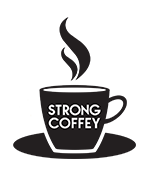How movement brought me relief from the unbearable weight of postpartum depression.
There was no darker period than the winter months following the birth of my second daughter. I experienced all the symptoms we’ve come to recognize as postpartum depression – loss of of interest, insomnia, lethargy, rage, hopelessness – symptoms that, in the moment, feel like a life sentence.
There was a yowling baby in my arms and a one-year-old at my feet. I sensed I had overestimated my abilities, and now all three of us were doomed. I felt incapable and alone and stupid. And, to add insult to injury, I looked like hell.
Women are constantly inundated by the media’s creative takes on the female body. Like so many of us, I’m a master of self-criticism and hateful self-talk. Being a self-employed wellness professional made it even worse. I had to get back to work ASAP. And I am my product. I needed to look healthy, well-rested, and fit – stat. I was suffocating under the pressure of my own thoughts – “Lose the belly!” “Time is money!” “Quickly!”
The idea of training hard was a joke. I couldn’t get it together to wash my face, never mind lift a weight. I was exhausted all day, every day with the toddler, and awake all night, every night with the baby. Days and nights blended together in a dizzying swirl of fatigue, anxiety, and guilt. I swore I could feel my muscles atrophying under my skin, and I didn’t even care. The more the voice in my head screamed at me to get myself back in shape, the less inclined I was to do anything but sit there.
One afternoon, all the different pressures came to a head. I was angry at myself for the frothy emotional heap I’d become, angry at the babies for being so needy, angry at the bills that weren’t getting paid, and angry at my body for not being something I could will back into shape. I was being assaulted from the inside out and from the outside in. The walls were collapsing. I needed to get out. Now.
It was freezing out. No matter. By the time I had both babies dressed – one in the stroller and one strapped to me in a carrier under my coat – I felt about an inch from homicide.
I hit the street, and I walked. I walked like the devil was chasing me. I walked without regard for the bouncing baby. I walked without speaking a word to the toddler. The inside voice went quiet, too. No harping, no resentment, no worrying, no envying, no bullshit, no insults, no lectures. Left-foot-right-foot-inhale-exhale, repeat.
I became aware. First, the crunch of my steps and my shallow breath in the wind and the crack of sand and gravel under the stroller wheels. Then the burn of energy building in my quads and calves. Then the warmth of the baby sleeping on my chest.
And then the tears came. An ocean’s worth in two hot, fast rivers that clung to the underside of my chin and turned to ice water. I wiped it away with the back of my free hand and shoved my hand back in my pocket to keep it from freezing.
The rest of that winter I walked. Not every day, and not always very far, but I walked. I walked away the weight of my impossible, culturally-imposed expectations. I walked to silence the critical tirade in my head. The faster I walked, the more peaceful I felt. The more out of breath I was, the easier it felt to breathe.
For weeks, when I did anything approximating exercise, I cried. When I walked, when I stretched, and eventually when I managed my first postpartum squat set; every single thing I did started the rivers flowing. It was something I acknowledged and looked forward to. It was my one reliable release. When I returned home from a fast walk, I felt loose and empty, like I had space to breath into, and like everything was – if only for a few minutes – not going to fall apart.
At a MotherWoman group following the birth of my first daughter, I had been encouraged to speak the truth about my experience – the myriad challenges, the sense of isolation, the pressure to act like I was “fine.” Because of the work I’d done and the support I’d gotten at the group, I knew that what was happening to me emotionally, though incredibly difficult, was and is happening to millions of new mothers every year. This knowledge, along with the work I’d already done in those rooms, enabled me to take care of myself in some small, crucial ways that winter.
I moved every day, privately motivated by the push to purge my great sadness, the need to breathe, and the deep knowing that eventually I would feel differently – that eventually I would feel better. For a time, the closest I could get to joy was hot tears and fast breaths and a quiet mind, and it was lovely.
The baby just turned one. She and the toddler love to ambush my personal training studio. They prefer lifting weights to dressing dolls. I wonder where they got that from. I don’t cry anymore when I workout. I have no idea when that glorious little association ended. What mother has time to notice these things, right?
Author’s bio: Kelly Coffey is a formerly obese personal trainer and blogger living in Western Massachusetts. She writes about – you guessed it – exercise, general wellness, food addiction, and nutrition. Coffey is also a trained MotherWoman facilitator, a coffee snob, and an unapologetically opinionated smart ass. She was a steaming train wreck during both of her postpartum periods, despite having a loving, helpful husband, and supportive friends.


You write eloquently. ‘Nuff said.